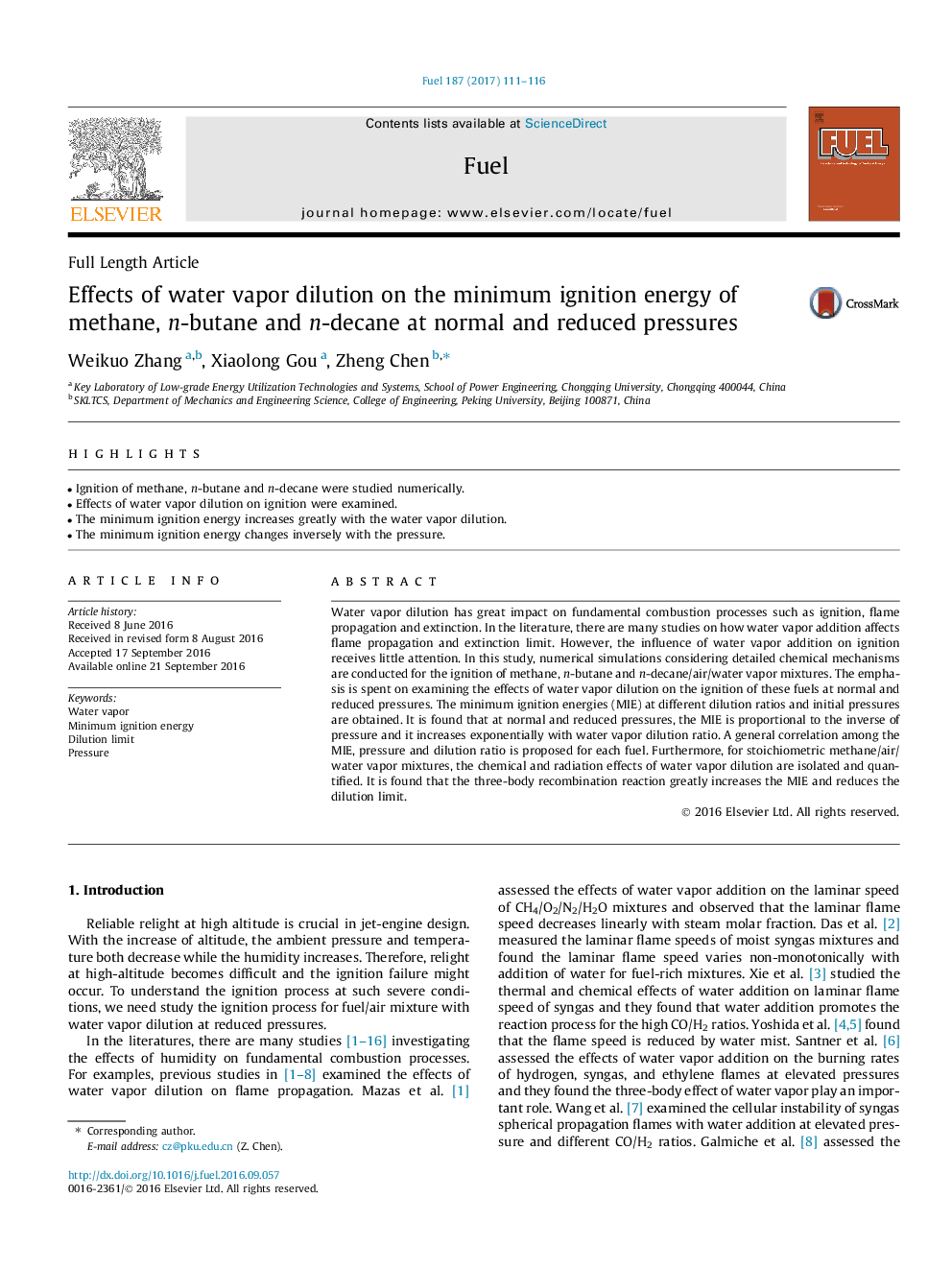| کد مقاله | کد نشریه | سال انتشار | مقاله انگلیسی | نسخه تمام متن |
|---|---|---|---|---|
| 6475923 | 1424977 | 2017 | 6 صفحه PDF | دانلود رایگان |

- Ignition of methane, n-butane and n-decane were studied numerically.
- Effects of water vapor dilution on ignition were examined.
- The minimum ignition energy increases greatly with the water vapor dilution.
- The minimum ignition energy changes inversely with the pressure.
Water vapor dilution has great impact on fundamental combustion processes such as ignition, flame propagation and extinction. In the literature, there are many studies on how water vapor addition affects flame propagation and extinction limit. However, the influence of water vapor addition on ignition receives little attention. In this study, numerical simulations considering detailed chemical mechanisms are conducted for the ignition of methane, n-butane and n-decane/air/water vapor mixtures. The emphasis is spent on examining the effects of water vapor dilution on the ignition of these fuels at normal and reduced pressures. The minimum ignition energies (MIE) at different dilution ratios and initial pressures are obtained. It is found that at normal and reduced pressures, the MIE is proportional to the inverse of pressure and it increases exponentially with water vapor dilution ratio. A general correlation among the MIE, pressure and dilution ratio is proposed for each fuel. Furthermore, for stoichiometric methane/air/water vapor mixtures, the chemical and radiation effects of water vapor dilution are isolated and quantified. It is found that the three-body recombination reaction greatly increases the MIE and reduces the dilution limit.
Journal: Fuel - Volume 187, 1 January 2017, Pages 111-116